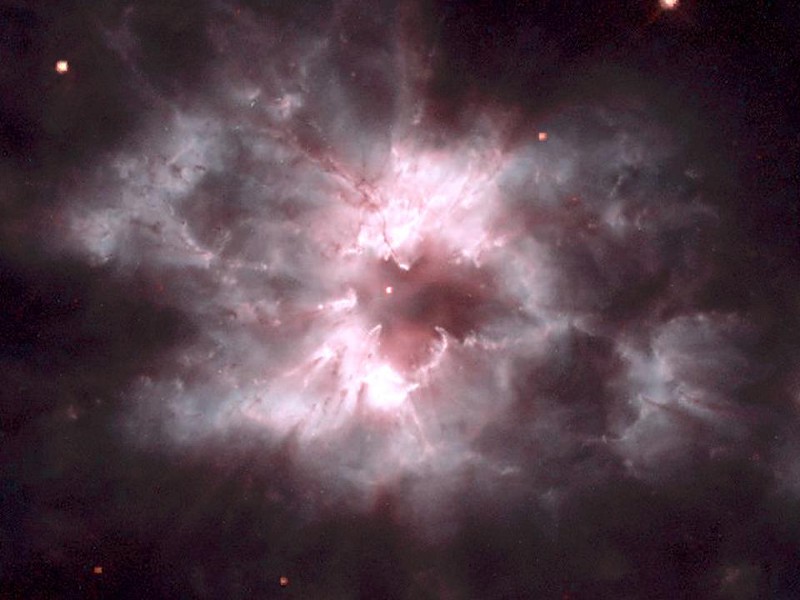Inside each of us lives a world so vast, so intricate, that it rivals the cosmos itself. This world does not exist in the skies or the stars, but within the twisting corridors of our intestines. Here, trillions of microorganisms—bacteria, fungi, viruses, and other microscopic inhabitants—carry out a constant dialogue with our body and, astonishingly, with our brain. This hidden network is called the microbiome, and the conversation it conducts with the nervous system is what scientists now call the gut-brain axis.
For centuries, we imagined our thoughts and feelings to be the sovereign realm of the brain, untouched by the silent work of digestion. But today, research reveals a more profound truth: our gut and our brain are in constant communication, shaping our mood, our behavior, our immunity, and even our perception of the world. The idea that a bad day, anxiety, or sudden joy might be influenced not just by events around us but by the trillions of unseen life forms within us sounds like science fiction. Yet this is the biological reality of being human.
The gut is not merely a tube that digests food. It is a sensory organ, a chemical factory, a defense system, and an emotional mirror. Understanding the gut-brain connection opens a door to healing, resilience, and perhaps a radical redefinition of what it means to be healthy.
The Forgotten Organ of the Body
The gut microbiome was once overlooked, dismissed as mere passengers hitching a ride through our digestive system. But now, scientists refer to it as a forgotten organ, one that plays vital roles across nearly every system in the body. Each human gut is home to around 100 trillion microbes—outnumbering human cells by a factor of ten. Their combined genetic material, collectively called the microbiota genome, dwarfs our own by hundreds of times.
What are these creatures doing inside us? Far from being idle, they digest fibers we cannot break down, produce vitamins such as K and B12, and generate metabolites that circulate through our bloodstream. They train our immune system, keeping it sharp against invaders while preventing it from overreacting to harmless particles. Most remarkably, they produce neurotransmitters—chemical messengers that the brain uses to communicate. Serotonin, dopamine, and gamma-aminobutyric acid (GABA), which regulate mood and emotions, can be manufactured in the gut by microbes.
Thus, the gut is not only digesting but also speaking, whispering messages that travel up the vagus nerve, the great information highway connecting the intestines to the brain. Through this nerve, electrical signals and chemical cues pass back and forth. A tense stomach before an exam, the butterflies of falling in love, the gut-wrenching stress of fear—these sensations are not metaphors. They are literal reflections of gut-brain communication.
How the Gut Talks to the Brain
The dialogue between gut and brain is ceaseless, traveling along multiple pathways. The most direct is the vagus nerve, a thick bundle of fibers that links the gastrointestinal tract to the central nervous system. Imagine it as a telephone line carrying updates: signals about nutrients, inflammation, microbial activity, and stress responses.
But the vagus is not the only channel. Chemical messengers produced in the gut can slip into the bloodstream, cross the blood-brain barrier, and influence neuronal activity. Immune signaling is another pathway; gut microbes can regulate inflammation, and inflammation, in turn, profoundly affects brain function. Hormones generated in the intestines can alter appetite, mood, and energy levels, sending cues that our brain interprets often without our conscious awareness.
Together, these pathways form a network where the gut does not passively wait for the brain’s commands. It contributes opinions, negotiates with signals, and sometimes overrules. This is why the gut has earned the nickname “the second brain.” Though it does not think in words or images, its influence over our emotions and mental state is profound.
Microbes and Mental Health
One of the most striking discoveries in microbiome research is its influence on mental health. Depression, anxiety, autism spectrum disorders, and even neurodegenerative diseases like Parkinson’s and Alzheimer’s all appear to have connections to the gut.
Take depression: studies have shown that people suffering from major depressive disorder often have altered microbiome compositions compared to healthy individuals. Certain strains of bacteria that produce short-chain fatty acids—molecules with anti-inflammatory and neuroprotective effects—are depleted. Experiments in mice have gone further: transferring gut bacteria from depressed patients into germ-free mice can induce depression-like behaviors in the animals. This suggests not only correlation but causation.
Anxiety, too, has microbial roots. The gut microbiome influences the release of GABA, the neurotransmitter most responsible for calming neural activity. Alterations in microbial diversity can lead to reduced GABA production, tilting the nervous system toward hyperactivity and fear. Intriguingly, probiotic interventions—specific strains of beneficial bacteria—have been shown in some studies to reduce symptoms of anxiety.
Even conditions like autism are under investigation through the lens of the microbiome. Many children on the autism spectrum experience gastrointestinal issues, and emerging research hints that microbial imbalances may exacerbate behavioral symptoms. While science is far from claiming a cure, the possibility that targeted microbial therapies could improve quality of life for autistic individuals is a powerful frontier.
Stress and the Gut’s Fragility
Stress is one of the most immediate ways we feel the gut-brain connection. Under pressure, the brain signals the adrenal glands to release cortisol and adrenaline. These stress hormones do not stop at the brain—they flood the gut as well. Cortisol alters the permeability of the intestinal lining, making it “leaky.” This leaky gut allows molecules to escape into the bloodstream, provoking immune responses and fueling systemic inflammation.
At the same time, stress changes the balance of the microbiome. Beneficial bacteria may dwindle, while opportunistic or harmful species expand. This imbalance, known as dysbiosis, feeds back into the brain, amplifying anxiety, depression, and even cognitive fog. It becomes a vicious cycle: stress harms the gut, the altered gut worsens mental health, which creates more stress.
Breaking this cycle requires nurturing the microbiome. What we eat, how we rest, and the rhythms of our daily lives all play crucial roles. Fiber-rich foods, fermented products like yogurt or kimchi, and polyphenol-rich fruits can support microbial diversity. Sleep, exercise, and mindfulness practices help regulate both the brain and the gut, creating harmony across the axis.
Childhood, Microbes, and the Making of a Mind
The gut-brain connection is not something that emerges late in life; it begins at birth. An infant’s microbiome is seeded during delivery, influenced by whether the baby is born vaginally or via cesarean section. Breast milk nourishes not only the infant but also specific microbes, carefully shaping the microbial community.
This early environment has profound consequences. Studies suggest that children deprived of microbial diversity in infancy may be more prone to allergies, asthma, and autoimmune conditions. Even neurodevelopment can be affected. The formation of neural circuits, emotional regulation, and resilience to stress may all depend on the richness of the microbial ecosystem established in those first years of life.
This does not mean destiny is sealed at birth. Throughout life, the microbiome remains adaptable, responsive to diet, environment, and lifestyle. But it does underscore how intimately our inner microbial world is tied to who we become.
Neurodegeneration and the Microbiome
In the twenty-first century, diseases of aging—Alzheimer’s, Parkinson’s, and other neurodegenerative conditions—have become urgent medical challenges. Increasingly, researchers are discovering microbial fingerprints in these disorders.
In Parkinson’s disease, for example, misfolded proteins called alpha-synuclein accumulate in the brain, leading to tremors and movement difficulties. Recent studies suggest these proteins may actually begin misfolding in the gut, long before symptoms arise. Certain gut microbes appear capable of promoting or inhibiting this process, making the microbiome both a potential risk factor and a target for therapy.
Alzheimer’s, too, has links to gut health. Chronic inflammation, often triggered by dysbiosis, contributes to the buildup of amyloid plaques in the brain. The immune system, shaped in part by microbial signals, may either clear or fail to clear these toxic accumulations. While no simple probiotic can cure Alzheimer’s, the growing evidence suggests that brain aging cannot be fully understood without considering gut ecology.
Food as Medicine, Food as Message
If microbes influence the brain, then what influences microbes? The answer is, in large part, our diet. Every meal we eat is not only nourishment for us but also a vote for which microbial citizens will thrive in our intestines. Fiber acts as fertilizer for beneficial bacteria, enabling them to produce short-chain fatty acids that calm inflammation and protect neurons. In contrast, a diet high in processed foods, sugar, and unhealthy fats can deplete diversity, encouraging harmful strains that inflame the gut and fog the mind.
Fermented foods provide living cultures that may reseed the microbiome. Yogurt, kefir, sauerkraut, miso, and kimchi carry bacterial allies that can integrate into our inner ecosystem. Polyphenols from berries, green tea, and dark chocolate fuel bacteria that, in turn, generate compounds with antidepressant and antioxidant effects. The old adage “you are what you eat” gains new meaning: you are also what your microbes eat.
This is not to suggest that food is a cure-all for psychiatric or neurological conditions. But it is a foundation. A resilient, diverse microbiome, nourished by thoughtful choices, creates conditions where the brain can flourish.
The Future of Microbiome Medicine
Science is only at the threshold of understanding the gut-brain connection. The coming decades may bring personalized microbial therapies—tailored probiotics, targeted antibiotics, or even microbiota transplants—to treat conditions ranging from depression to dementia. Already, experimental treatments like fecal microbiota transplantation have shown promise in restoring gut health in cases of severe infection. Could similar strategies one day recalibrate the brain?
What excites scientists most is the possibility that we may prevent illness by nurturing the microbiome early and consistently. Imagine a world where mental health is supported not only by therapy and medication but also by a personalized nutrition plan, where childhood development is safeguarded through microbial care, where aging brains remain sharper because of diets designed to sustain microbial allies.
But caution is vital. The microbiome is immensely complex, and simplistic solutions can do harm. Not all probiotics are beneficial, and not all microbes are interchangeable. The science must proceed carefully, guided by rigorous evidence rather than marketing hype.
Living in Harmony with the Hidden World
Ultimately, the gut-brain connection teaches us humility. We are not solitary beings, but ecosystems. Our thoughts, emotions, and health arise not only from neurons firing in isolation but from the symphony of trillions of microbial voices within us. To live well is to honor this hidden world—to feed it, protect it, and listen to its whispers.
The microbiome’s hidden power is not only a story of biology. It is a story of interconnectedness. Just as no neuron acts alone in the brain, no human lives apart from the microbial life that sustains us. The gut-brain axis reminds us that the borders between self and other are porous, that health is a dialogue, and that well-being is an ecology.
In every anxious flutter of the stomach, in every sense of calm after a nourishing meal, in every spark of energy that rises unbidden, we feel the presence of this dialogue. It is not a conversation we can hear, but it is one that shapes us profoundly. To understand it is to reclaim part of ourselves long forgotten.
The gut is more than an organ. The microbiome is more than a collection of microbes. Together, they form a hidden ally—a second brain, a secret companion, and perhaps the most extraordinary partner in the journey of being human.






